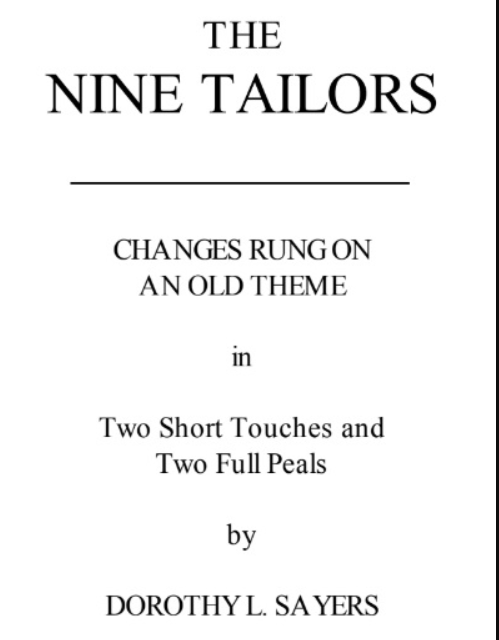It has long struck me that science fiction/fantasy is an interesting source for submerged ideas about the legal past. Many of them have ‘sort-of-medieval’ societies, which are set up using assumptions and constructions about medieval law, and other legal ideas can be detected too. The Dune novels of Frank Herbert[1] cover a great sprawl of imagined time and space, in a far-future in which there are multiple planets with human(oid) civilisation. There are various massive changes over the six books in terms of forms of government and social organisation, and focus changes between various groups and individuals. They include numerous references and clues to the legal underpinnings of the various societies involved. These come from a particular perspective – that of the ‘western’ male of the mid-twentieth century, and from a society in which Anglo-American law is a formative influence. Whatever is the equivalent of the ‘Overton window’ for imagination is limited for all of us by such a background, and it is possible to see numerous debts to ideas about law which are clearly based on popular perceptions from Herbert’s own time, as well as that time’s popular perceptions of the legal past. I have enjoyed thinking about this, and I think that there is scope for much further consideration of sci-fi/fantasy as a source or prompt for Legal History.
Here, for what they are worth, are my thoughts.
In the period of the first book, the main systems of law/norms which we see are (i) what I would call the ‘general law’ – overarching rules applying to the Imperium and its constituent parts; and (ii) the specific laws/customs of the Fremen of Arrakis, a.k.a. Dune, a desert-living people, the conception of whom owes much to a 1960s US conception of Arab peoples, viewed through the lens of the film Lawrence of Arabia (1962).
The basic constitutional set-up is that there is an emperor, and a set of hereditary rulers of planets, or planetary systems, owing allegiance to the emperor (leaders of the Great Houses and the Minor Houses). We don’t hear much about the lower orders – though there are definitely slaves.[2] In Dune, the ‘basic law’ governing relationships here is the Great Convention (GC), a ’universal truce enforced under power balance maintained by Guild, Great Houses and Imperium’.[3] It is not quite clear how detailed this is: is this a ‘codified’ legal world’ – should I be thinking of sometihng the length of Magna Carta or something more like the Code Napoléon? Another source of law is legislation by the Landsraad, which seems to be a sort of parliament.[4] There are also imperial Orders in Council.[5] And public law fans everywhere will be thrilled to learn that there is some rumbling about wanting a proper written constitution.[6] After the first book, things get a bit messier, and there is much more tyranny, much less in the way of widely-agreed rules.
An aspect of the system-building in Dune that I like is the mixing of ideas of hereditary rule with those of corporate law and structure. The relationship between the emperor and the Great Houses is complicated by the presence of a corporate vehicle, CHOAM. Shares, and corporate roles, in this huge development company go along with position in the hereditary structure. I suppose what appeals to me about this is the idea that the crown and hereditary power organisational model is not some sort of high-minded ‘noble’ thing, above the fray capitalist structures: it is all about the money, and employs whatever legal vehicles maximise profits for a limited group of people.[7]
Law and tyranny: ‘Law is the ultimate science’[8]
It would be safe to say that there is not a particularly positive view of law, overall. We have various statements to the effect that law does not work, or is counter-productive (often, it must be said, from those who would rather not be fettered by any silly rule-of-law nonsense …) Thus, once he is emperor, Paul Atreides is not very keen on the idea of a constitution (which would of course, tie his hands somewhat): ‘Constitutions become the ultimate tyranny’.[9] Convenient. Just begging for a ‘discuss’, isn’t it? Jessica and Alia agonise over the law/religion/government relationship.[10] The Bene Gesserit Sisters also have an idea that they are above the law, obeying a higher morality.[11]
More general and unfocused law-slagging-off can be seen, e.g. here: ‘What is law? Control? … Law – our highest ideal and our basest nature/ Don’t look too closely at the law. Do and you’ll find the rationalized interpretations, the legal casuistry, the precedents of convenience. You’ll find the serenity which is just another word for death’.[12]
Often, a dim view is taken of the utility of law (which, in a slightly inexact/lazy twentieth century view seems to mean positive, statutory, criminal, law): ‘Laws to suppress tend to strengthen what they would prohibit.’[13] This is coupled with a slur against the legal profession (otherwise notably absent) which seems a bit lazy and out of place – ‘…This is the fine print on which all the legal professions of history have based their job security’.[14]
The rather limited view of law on display clearly does not involve any room for discretion, mercy, equity. These things have to be supplied from without: ‘Laws are dangerous to everyone – innocent and guilty alike… They have no human understanding in and of themselves … Laws must always be interpreted. The law-bound want no latitude for compassion. No elbow room. The law is the Law!’[15] Apparently legal history scholarship on mercy, pardons, equity, will not survive into the time of the Duniverse …
The God-Emperor Leto II rather gives up on law as a tool of control, preferring religion as a way of keeping people occupied and in order.[16] He sees a need for (civil) law in cities, where ‘many injuries occur’, but there is a significant ‘downside’: ‘ The law develops its own power structure, creating more wounds and new injustices’.
On a more technical legal-scholarship level, I am not sure what public lawyer colleagues would make of the attempts to differentiate ‘law’ and ‘regulation’ in a discussion between a BG sister and the chief Honoured Matre in the last book: ‘If you do not see the difference between regulation and law, both have the force of law/’[17] (Eh?) The following account definitely does not fit in with ideas about Law in historical context: ‘Laws convey the myth of enforced change. A bright new future will come because of this law and that one. Laws enforce the future. Regulations are believed to enforce the past’.[18] Another relevant distinction is that between law and custom. In the first book in particular, we see customary law amongst the Fremen (more below). There is even the odd bit of jurisprudence – an undead philosopher trashes natural law and has a go at classic seminar question ‘What is justice?’.[19]
Substantive legal rules
Many of these are alluded to through the series. I will note just a few here.
In terms of content, the GC includes rules, each beginning ‘‘the forms must be obeyed’.[20] The chief rule is that no atomic weapons to be used against a human target. The penalty for transgression is planetary obliteration.[21] A much later summary of the rule is ‘You blast anyone and we unite to blast you’.[22] Some weapons appear to be on the edge of legality under this rule, particularly the ‘stone-burner’ (radioactive, deadly, blinding …).[23] There is also the Dictum Familia – setting up the rules on non-prohibited assassination (because informal treachery would be really bad …) and strict rules about kanly (feud or vendetta), involving swearing kanly, and then being entitled to kill all agents of the House against which it has been sworn.[24]
The general thrust, then, seems to be an agreement which does not aspire to genuine peace, but tries to keep a lid on excessive disorder by setting a few rules. The kanly idea has certain resonances with ideas about the early medieval period, and the assumed ubiquity of the ‘blood feud’, but with no real central effort to channel people’s grievances towards compensation rather than vengeance (as we see in many compensation-tariff codes set out by central authorities across western Europe in this period).[25]
The GC also includes rules against computers (artificial intelligence having somehow sparked off the ‘Butlerian jihad’, a major upheaval …) and there is an exhortation to ‘Make no device in the likeness of the mind’.[26] Rather of its time in terms of Legal History – the genie is rather too far out of the bottle for this to be a possibility in our future.
Other aspects of organisation are not explicitly tied to the GC or particular legislation, but seem to have the status of law. Family law and succession are clearly important. There is an idea of monogamous marriage, but also other forms of relationship amongst the ruling classes. Baron Harkonnen seems to favour young male partners, and nobody seems to be bothered.[27] The series generally portrays heterosexual pairings, which, I suppose, is characteristic of limits on imagination at this period, as well as being tied to its disturbing obsession with breeding (eugenics really).[28] There is a hint of rape-myth thinking in a statement about submission ‘to a form of rape at first only to convert this into a deep and binding mutual dependence’.[29] Don’t think so, though such views can certainly be dredged up from any study of the history of rape. Probably the most disturbing aspect of sexual behaviour which appears in the series is the not-really-condemned ‘initiation’/ abuse of a male child by an older woman in book VI – perhaps we are supposed to think that this is not wholly abusive and grim because the child is a reincarnated version of somebody who was previously mature. Clearly terrible. A reminder that there were some very wrong ideas about this sort of thing floating about in the not-too-distant past.
Powerful men may have a concubine, and this is a relatively respectable position. Jessica is described as the concubine, or formal concubine, or bound concubine of Duke Leto (who is unmarried, for political reasons). As concubine, Jessica has a degree of power and respect, and her son, Paul, is regarded as legal heir to the Dukedom, and then rightful Duke, and Alia Leto’s legal daughter.[30] Still, it is a bit of an unsatisfactory position, even if Leto charmingly tells her that she is actually better off because he hasn’t married her (it seems to be his choice …) as that means she doesn’t have to eat formally with him every night.[31] The pattern is repeated in the next generation: Paul is ‘with’ his Fremen woman, Chani, but is going to marry the Emperor’s heiress, Princess Irulan. It’s OK though, because ‘this is a political thing … [and] that princess shall have no more of me than my name.’ [no sex, no kids – and the name thing shows that gender trumps rank …][32]
There are a few statements about property which are worth noting, in particular in the last book. In a fascinating exchange between the BG Mother Superior, Odrade, and a ghola (much reincarnated being), Teg, the view is expressed that ‘Ownership is an interesting question’, and it is asked ‘Do we own this planet, or does it own us?’[33] Not a million miles away from some of the discussions arising in modern, thoughtful, Land Law work, which takes in the perspectives of indigenous peoples. Likewise the interpretation of the relationship between the BG and the planet they inhabit as one of ‘stewardship’.[34]
Fre-dom
We are invited – implicitly – to contrast the laws and treachery of the rest of the universe with the honour and law of the semi-nomadic Fremen. There is more than a touch of orientalism/romanticising the ‘primitive’ about this (and before we dismiss the latter as a term we would never use now, I did notice ‘ancient and primitive law’ as a heading within the classification system at a library last week). The laws and customs of the Fremen are strange to outsiders at first, but the suggestion is that they are logical responses to their unforgiving environment, with its extreme shortage of water. I don’t think we are supposed to see the Fremen as misogynist, but some of their rules definitely show the perspective of a man of the mid-20th C. No hint of Frewomen’s Liberation …
They may be Fre, but the Fremen are not individualistic. It is all about the group’s survival, and getting and retaining water. The overall rule is: ‘A man’s flesh is his own; the water belongs to the tribe’.[35] Leading on from this, those who are net takers of water without providing anything to the group may be sacrificed, and rendered down for their moisture,[36] and the blind ought to be abandoned in the desert, presumably for similar reasons.[37] Taking it a step further, in a sense, it was, at least at one time, the case that ‘someone caught outside the sietch without a stillsuit was automatically killed. To waste water was to endanger the tribe.’[38]
Despite the whole group thing, there is also some sort of individual property right in water. Paul is entitled to the water of a defeated adversary, and Jessica retains rights in the bottled water she brought with her. Giving some of it up to the others whilst in the desert will be compensated tenfold when they get to the Fremen settlement.[39] There are also tokens for water from the common stock, which are involved in courtship (I love you so much I am giving you the moisture captured from somebody’s squished flesh ..). There also seems to be a limited idea of property in chattels – so things belong to people, but are shared out by the leader when somebody dies.[40]
Keeping one’s word is a big deal, and there is a consciousness of being especially honourable in this respect. Contracts are, of necessity, oral.[41] [No specialty rule for the Fremen …]
The Fremen use trial by combat not (just?) for things we would think of as legal, but to determine truth, under the ‘amtal rule’.[42] Combat seems to be an all male affair,[43] and is to the death. Intriguingly, there is an echo of medieval trial by combat procedure, in that it has to be ensured beforehand that Jessica, who has the special powers of a Bene Gesserit ‘witch’, will not put a spell on a combatant.[44] There is also some form of ordeal – as when Jessica shows she is fit to be a Reverend Mother (this ordeal rather resembling the ordeal of the bitter waters, Numbers 5:11-31).[45] Ordeals are not confined to the Fremen: Paul is also tested by a Bene Gesserit Reverend Mother, to check his humanity (didn’t quite get that …) in a fancy process involving a poison needle and a box of (artificial) pain (if you can have artificial pain ..physiological/philosophical rabbit hole there …). Bit of a step up from hot iron, ploughshares and holy morsels of medieval European ordeals. Interestingly this is not founded on an appeal to God, but on psychological understanding of what humans and animals would do differently.[46]
Anyway, back to the Fremen. Combat is also the way one leader takes over from the last. The Fremen do not have hereditary leadership, but rather the strongest person (well, man) leads: ‘the one who brings water and security’.[47] Paul manages to change the rule, so he doesn’t have to kill Stilgar to lead. Instead, he has Stilgar go through what looks like a homage ceremony, kneeling, handing over his knife, swearing fealty.[48] Hmm – doesn’t sound that Fre to me …
Except there is relatively Fre love. For the men anyway. And assuming that they like women. At least there is a convention that women ‘are not taken against their will’.[49] Nevertheless, there are certainly situations in which men get to do the choosing as to relationships – we see this after (15 year old) Paul beats Jamis in combat, and gets to decide whether to have his widow as his woman or his servant, or free her.[50] And families appear to decide who a Fremen woman will marry (relatively young).[51] So – not as fre-ly consensual as all that. Another aspect of Fremen Family Law which emerges is that there is a rule against incest: the death penalty (hanging on a tripod) applies to incest.[52] Exactly what amounts to incest is unclear, beyond the example of brother and sister which is the matter in hand in the passage relating to this law. One would have thought that the structure of society would have meant quite a lot of in-marriage within tribes, so the rules would have to be restricted to a small number of banned relationships.
One practical issue which is not addressed is how exactly initmacy works – I don’t mean the complex business of getting into somebody’s stillsuit, but the water issue. They are all so cautious about losing moisture, but there is the issue of, well, fluids involved in ‘the huddlings of sex’,[53] isn’t there?
Law, religion, witchcraft and eugenics: the Bene Gesserit
One of the groups involved in power and overthrow of power is called the Bene Gesserit. Not quite clear to me why that name would have been chosen – it alludes to good behaviour, and for legal historians has resonance with the commission to judges that they shall keep their role as long as they do not misbehave (as opposed to serving as long as the monarch pleases, the older, pre-17th C, rule which made it simpler to remove them). This has been taken to be important for judicial independence (though it can be exaggerated, because it does nothing to ensure that those who are appointed in the first place are independent types rather than subservient ones). I am not quite sure what that has to do with the Bene Gesserit in the Dune books, who are an order of women with highly trained physical and especially mental capacities. They are associated repeatedly with another rather 17th C-resonant thing, though: witchcraft. They are forever being called witches, and we even get a very witch-hunty citation of ‘Thou shalt not suffer a witch to live’ at one point.[54] They have a sort of ‘evil twin’ organisation – the Honoured Matres – in later books, these women being possessed of various skills including deadly foot-fighting abilities and extraordinary sexual abilities, but not particularly interesting from a legal/historical point of view. The BG are supposed to be sort-of sympathetic, but manipulative in terms of religion and mad-keen on eugenics (even though the little ladies don’t always get this right …and it is slipped in that their massive breeding programme apparently involves killing some children).[55]
History
Some glimpses of modern popular attitudes to history come through as well. There is a nice episode involving the emperor/tyrant/ weird wormy slug man, Leto II and some historians: he executed them, he said, ‘because they lied pretentiously’.[56] This was not your actual vivicombustion[57] though, so that was better than it might have been, he tells us. Not quite clear what was wrong with their work, but I might be able to think of one or two historical works which might conceivably fall into the category ‘pretentious’ … will say no more.
There is some more general comment on history. Partly it’s a bit trite (and borderline Toryish grumbling about historians revising things …in the wrong way):
‘Historians exercise great power and some of them know it. They recreate the past, changing it to fit their own interpretations. Thus they change the future as well.’[58]
I do think that there is a nice bit of insight/prescience about the way a lot of popular history has gone in a quotation put into the Chronicles of the Bene Gesserit Chapterhouse, which seems a fitting place to end:
‘The ease with which historians can be captivated is explained in part by the fact that bloody events exert a magnetic attraction on humankind. Historians … cater to that ancient human desire you see manifested in the mobs gawking at executions or pepople stopping to stare at the scene of an accident. Historians have the added incentive that catering to this bloody attraction often produces wealth and power. It is popular. Digging deeply into obscure events and the secret machinations of unknown people is not only more difficult, it is observably dangerous to careers’.[59]
I cannot say that working on some of the more grisly aspects of medieval law has brought me wealth or power, but there is some truth here, and it is certainly worth bearing in mind, as I return to the other thing I promised myself I would finish off today, on medieval petty treason (ft. burning at the stake) …
A Better New Year to us all: repeat it with me …
“I must not fear. Fear is the mind-killer. Fear is the little-death that brings total obliteration. I will face my fear. I will permit it to pass over me and through me. And when it has gone past I will turn the inner eye to see its path. Where the fear has gone there will be nothing. Only I will remain.”
GS
31st December 2021.
Photo by Ryan Cheng on Unsplash (Disclaimer – I admit that this is not actually the planet Dune …)
[1] I have read only the six novels by Herbert himself: Dune (1965) = I, Dune Messiah (1969 = II); Children of Dune (1976) = III; God Emperor of Dune (1981) = IV; Heretics of Dune (1984) = V; Chapterhouse Dune (1985 = VI). One day I may get around to reading the various sequels and prequels by others, but there is a limit to my current capacity for nerdery.
[2] I: 39. And obviously he does say ‘slaves’ rather than ‘enslaved people’. 1960s.
[3] I: 596.
[4] II: 75
[5] II: 76.
[6] II, 76.
[7] CHOAM rather fades from view in later novels, I am afraid, fans of company law/legal history.
[8] I: 252 ‘Thus it reads above the Emperor’s door’.
[9] II: 76.
[10] II: 252.
[11] VI: 154, Lucilla.
[12] II: 249.
[13] VI, 119.
[14] ibid. ‘Bene Gesserit Coda’. Sounds more like a grumpy, easy, 20th C thing to say, lashing out at ‘the lawyers’ .. might do as an exam question though!
[15] VI: 154, Lucilla. See also Odrade, 237.
[16] IV: 225.
[17] VI: 152, Lucilla, not really answering the question, it seems to me …
[18] Ibid., and Lucilla again.
[19] II: 151 – Duncan Idaho, a fighter turned zombie type of thing (generally positive character) says of natural law that it is a ‘myth’ that ‘haunts human history’. II: 156 is his go at justice. Fair to say he has no problem with dictatorial power.
[20] I: 596.
[21] I: 514.
[22] VI: 134.
[23] II, 55.
[24] I: 100, 161, 517.
[25] See, e.g. Lisi Oliver, The Body Legal in Barbarian Law (Toronto, 2011).
[26] IV:32.
[27] Duncan Idaho is a big old homophobe though: IV:321.
[28] Limits on the imagniative treatment of scientific development are always interesting – it seemed more likely that a massive, slow, eugenic breeding programme obsessed with ‘Atreides traits’ would be allowed to develop, rather than the ability to alter people more quickly, once born, to get desired characteristics, apparently. The development of living furniture (the ludicrous and unnecessary ‘chairdogs’ was more imaginable than gene-editing …).
[29] IV:209.
[30] I: 54, 57, 589.
[31] I: 54.
[32] I: 561.
[33] VI: 14.
[34] VI: 15.
[35] I: 241.
[36] I: 238, 316-7.
[37] II: 242. Cue a nice bit of legal tricksiness from Paul – he loses his eyes, but initially argues that because he can see with his mystical powers, he doesn’t have to be desert-ed. In the end though, he surrenders to the law, to become properly Fre (though also, to be fair, properly dead). The Fremen Law about sending the blind off into the desert is expressed as consigning them to Shai-Hulud (the great worm) in III:39.
[38] III: 286.
[39] I: 349, 351.
[40] I: 354.
[41] I: 320.
[42] I: 337.
[43] Possibly a little inconsistent with the existence of Fremen amazons – II: 111?
[44] I: 340.
[45] I: 401.
[46] I: 6-9.
[47] I: 328.
[48] I: 489.
[49] I: 330.
[50] I: 389.
[51] III:290.
[52] III:113.
[53] I: 332.
[54] III:58.
[55] V:29.
[56] IV, 70, Year 3508 of reign of Lord Leto, BG Chronicle reports execution of nine historians ‘who disappeared into his Citadel in year 2116 of Lord Leto’s reign… the nine were rendered unconscious then bound on pyres of their own published works.’ See also V:6.
[57] Yes, I have all the vocab – a result of my petty treason work …
[58] V: 403.
[59][59] V:6, Bene Gesserit Chronicles of the Chapter House, from Mother Superior Darwi Odrade’s Argument in Council.











